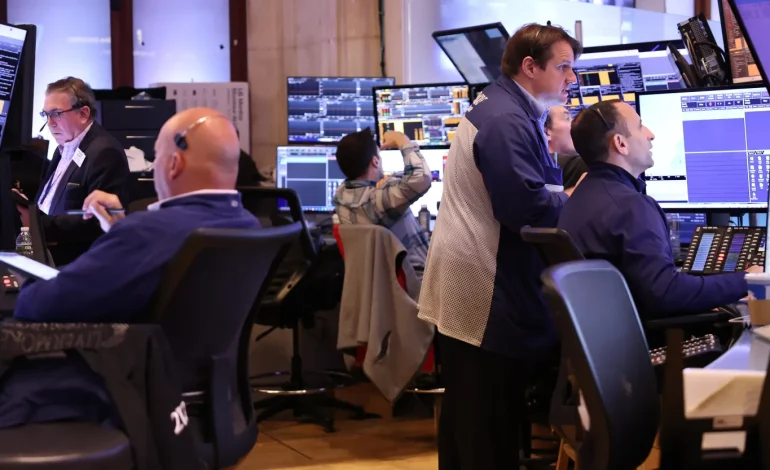World markets displayed mixed responses Friday following the Federal Reserve’s recent decision to lower interest rates to support the US economy.
European stocks saw modest gains, while Asian shares ended the week with varied performances, influenced by both the Fed’s policy shift and expectations surrounding President Donald Trump’s economic plans.
European markets opened slightly higher, with Germany’s DAX down just 0.1% at 19,362.32, and France’s CAC 40 and Britain’s FTSE 100 each edging down by 0.1%. US futures for the S&P 500 and Dow Jones remained steady, reflecting a cautious but positive sentiment among investors digesting the Fed’s decision.
In Asia, stock indexes showed a mixed performance. Japan’s Nikkei rose 0.3% to 39,500.37, whereas Hong Kong’s Hang Seng fell 1.1% after giving up early gains, ending at 20,728.19. The Shanghai Composite also slipped 0.5%. Investors are closely monitoring potential economic stimulus measures from Beijing to address China’s debt issues and a slowing economy. In response to this, China announced a three-year, 6 trillion yuan plan aimed at helping local governments manage debt and stimulate growth. Market analysts suggest that if these measures are implemented, they could spark a rally across the region.
The Fed’s interest rate cut was widely expected, and the market’s muted response reflects anticipation of this decision. This rate adjustment aligns with the Fed’s recent focus on sustaining employment while inflation edges closer to the 2% target. Yet, Fed Chair Jerome Powell acknowledged that Trump’s new term could bring significant shifts in economic policy, which might complicate future rate decisions. Trump’s plans for tariffs and other growth-driven initiatives are anticipated to increase economic activity but may also contribute to inflationary pressures.
Wall Street reacted positively to Trump’s victory earlier in the week, with the S&P 500 climbing 0.7% and the tech-heavy Nasdaq surging 1.5% on Thursday, closing above 19,000 for the first time. The positive sentiment is partially attributed to investors’ hopes for pro-business policies, including potential deregulation and tax cuts. The Nasdaq, S&P 500, and Dow are all on track for strong weekly gains, with the Nasdaq up 5.6% for the week. The latest stock rally is expected to continue, fueled by optimism around the administration’s economic agenda.
Scott Helfstein, head of investment strategy at Global X ETFs, noted that investors are hopeful about Trump’s pro-growth stance but remain cautious about possible inflation.
“While the market is signaling that a Trump administration would support growth, the combination of this growth with new tariffs could elevate inflation risk,” Helfstein said.
Market forecasts for additional rate cuts have also tempered somewhat, given these inflationary concerns.
On Friday, US Treasury yields showed slight declines, with the benchmark 10-year yield easing to 4.33% from Wednesday’s 4.44%, while the dollar weakened against other major currencies. Oil prices also dipped, with benchmark US crude trading at $71.47 a barrel.
With input from the Associated Press, CNN, and the Wall Street Journal.









